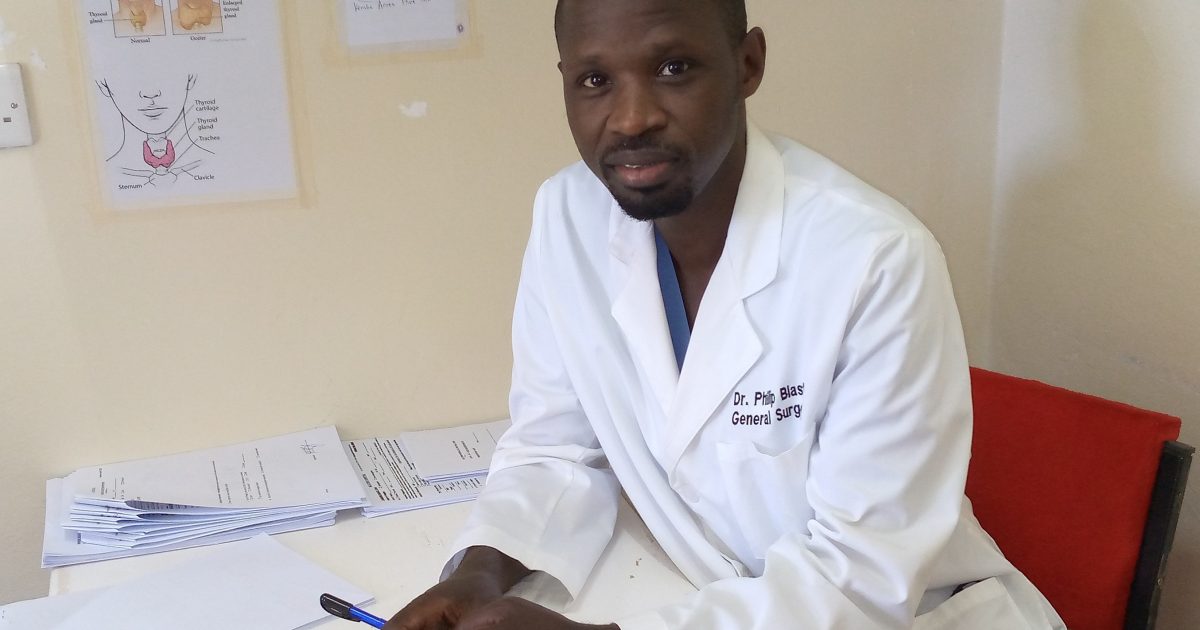Kericho County residents have been urged to use iodized salt as preventive measure against developing goitre.
A resident surgeon at the AIC Litein Kericho Annex Clinic Dr. Philip Blasto has said consumption of iodine in food stuffs minimizes the risk of growing goitre, which when left untreated can cause complications such as difficulty in swallowing and breathing.
Goitre is an enlargement of the thyroid gland which makes hormones that help control many vital functions in the body.
The gland is at the front of the neck just below the Adam’s apple and it can expand well beyond its typical size and cause a noticeable bulge in the neck, which is noticeable when a victim is swallowing or speaking.
Speaking during a thyroid clinic held at the Annex Clinic, Dr. Blasto recommended intake of iodine in diets to regulate thyroid functions, noting that iodized salt is a common source of the same.
“What has been shown to reduce the occurrence of goitre is taking iodinated salt. It is important for people to take iodinated salt in their diets. Iodine is an essential mineral for thyroid regulation and failure to consume adequate amounts of iodine could result in long term thyroid problems notably goitre and hypothyroidism, where the thyroid gland cannot produce and release enough thyroid hormone for normal functioning of your metabolism,” he said.
The medic lamented that the medical facility has encountered almost 40 patients from Bomet and Kericho counties suffering from goitre during their routine weekly outreach programs, while close to six patients undergo surgery during the same duration, an indicator that the disease was rampant in the two areas.
“The majority of patients attended to are women as men are relatively smaller in number and tend to have late advanced goitre because they tend to have late help seeking behaviors. In Kericho and Bomet, the clinics are run twice in a week and 30 to 40 patients have been diagnosed with goitre, an enlargement of the thyroid gland. We sometimes operate on eight patients in a week who require surgery,” he said.
Dr. Blasto agitated for personal health checks for early detection of the disease, which can be treated quickly avoiding any complications, adding that those who undergo surgery experience pain including difficulty in swallowing or breathing.
“The easiest way to check if one has a goitre is to stand next to a mirror and put some water in your mouth and swallow. If you see something prominent coming in as you swallow, then probably that is a goitre. The other is from people telling you that your neck seems to look enlarged. For a big thyroid gland, the risk of developing complications during surgery is very high. Early detection gives the patient the best chance for getting the right treatment quickly. Some patients come in after 10 to 25 years with goitre, hence the high risk of developing complications,” noted Dr. Blasto.
A goitre survivor Richard Serem, 65, said he lived with the ailment for 15 years and during that time he experienced excruciating pain and coughing, which was also accompanied by extreme fatigue, which saw him walk short distances with a lot of breathing difficulties.
He added that he underwent successful surgery in July last year and is now happy to resume his farming chores while in good health.
“I recovered from surgery within a day and I am happy the hospital came to my aid. All my efforts to treat the condition using traditional herbal medicine were fruitless. Walking short distance of 100 metres away would leave me very breathless and fatigued, which was a common feature in my life, besides experiencing a lot of pain and coughing. I am now well and can continue with my daily activities around my farm without any more hitch,” said Mzee Serem with a beaming smile.
By Sarah Njagi




